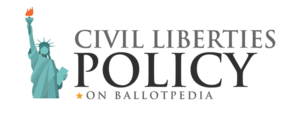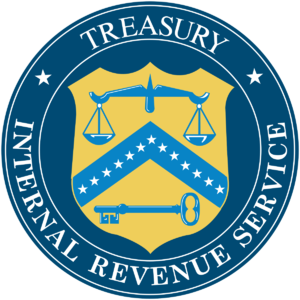501(c)(4)
| Civil Liberties Policy |
|---|

|
| Nonprofit regulation |
| This page is part of the Privacy Policy Project |
501(c)(4) refers to a section of the U.S. federal income tax code concerning social welfare organizations.[1] Corporations that have been granted 501(c)(4) status by the Internal Revenue Service are exempt from federal income tax.[2] However, unlike 501(c)(3) organizations, donations to 501(c)(4) entities are not tax-deductible for the individual or corporation making the donation. These organizations may engage in political lobbying and political campaign activities. This includes donations to political committees that support or oppose ballot measures, bond issues, recalls or referenda.
Common activities
501(c)(4) organizations are also known as "social welfare organizations." This can cause some confusion, as "social welfare" is, according to the IRS, "inherently an abstruse concept that continues to defy precise definition."[3] The following is one working definition the IRS uses to determine a group's "social welfare" status: "organizations that may be performing some type of public or community benefit but whose principal feature is lack of private benefit or profit."[4]
A key provision of "social welfare" is that the organization's purposes must be intended to benefit a community or the public at large, not a private group. According to the IRS, "To be operated exclusively to promote social welfare, an organization must operate primarily to further the common good and general welfare of the people of the community (such as by bringing about civic betterment and social improvements)."[1]
Some high-profile examples of 501(c)(4) organizations are Americans for Prosperity and Organizing for Action. Both organizations lobby and organize to promote legislative action and civic engagement, actions that are intended to bring about civic betterment.
Donations and disclosure
Donations to 501(c)(4) organizations are not tax-deductible for the individual or corporation making the donation.[5] 501(c)(4) organizations are required to disclose certain information publicly:
- The organization's tax exemption application (IRS form 1024)
- A portion of the organization's annual return (IRS Form 990)
However, according to the IRS, "with the exception of private foundations, an exempt organization is not required to disclose the name and address of any contributor to the organization."[6] In July 2018, the U.S. Department of the Treasury and the IRS announced that tax-exempt nonprofit groups under section 501(c) of the nation's tax code would no longer be required to disclose the names and addresses of their donors on tax documents, as was previously the case. The policy change applied to 501(c)(4) groups.[7][8]
The organization may choose to disclose donors, or the donor may choose to disclose that he or she donated to a 501(c)(4) organization.
Political and legislative activities
Political activities, as defined by the IRS, are the actions that participate in the electoral process.[9] The IRS does not consider direct or indirect political influence to be in the domain of promoting social welfare. However, a social welfare organization designated as a 501(c)(4) can engage in some political activity. Unlike the restrictions for 501(c)(3) organizations, 501(c)(4) organizations can legally participate in political activity in support of or opposition to candidates for office. These political activities cannot be the organization's primary activities and cannot be direct donations to a candidate for office or a candidate's committee.[9][10]
The IRS does consider legislative activities, commonly called "lobbying," to be activities that further social welfare purposes.[11] Thus, a 501(c)(4) organization may engage in an unlimited amount of lobbying so long as the lobbying is related to the organization's exempt purpose.[12]
Nonprofit status
501(c)(4) groups are sometimes referred to as nonprofits. This can be a source of confusion, because all U.S. states allow certain corporations to register as not-for-profit corporations. To receive nonprofit status, an organization must incorporate with an individual state and pay the filing fee.[13] 501(c)(4) status, however, refers to the organization's federal tax exempt status; this is issued separately from state-level not-for-profit status and is handled through the IRS rather than an individual state.[14] Thus, an organization may be a not-for-profit corporation under the laws of the state in which it is incorporated but not have federal 501(c)(4) status.
In addition, a nonprofit in some cases refers to two related corporations—a 501(c)(3) and a 501(c)(4). Under IRS tax code, it is legal to transfer funds from a 501(c)(3) to a 501(c)(4), but the restrictions on how the money is spent carry over on any such transferred funds.[15] The American Civil Liberties Union is one example of this type of organization: The ACLU Foundation is a 501(c)(3) conducting educational activities, yet the ACLU is a 501(c)(4) that primarily sponsors lobbying activities.[16]
Noteworthy events
2018
On July 16, 2018, the U.S. Department of the Treasury and the Internal Revenue Service announced that tax-exempt nonprofit groups described under section 501(c) of the nation's tax code would no longer be required to disclose the names and addresses of their donors on tax documents. The policy change did not apply to reporting requirements for 501(c)(3) groups, which remained unchanged. Groups covered by the policy change included 501(c)(4) organizations, such as Americans for Prosperity, Organizing for Action, the National Rifle Association, and Planned Parenthood. The policy change took immediate effect.[17]
In a press release, U.S. Treasury Secretary Steve Mnuchin said, "Americans shouldn't be required to send the IRS information that it doesn't need to effectively enforce our tax laws, and the IRS simply does not need tax returns with donor names and addresses to do its job in this area. It is important to emphasize that this change will in no way limit transparency. The same information about tax-exempt organizations that was previously available to the public will continue to be available, while private taxpayer information will be better protected." Senate Majority Leader Mitch McConnell (R-Ky.) praised the policy change: "It's particularly welcome news to those of us who are intently focused on defending the First Amendment, for those of who raised concerns during the last administration about activist regulators punishing free speech and free association. The IRS will no longer pointlessly demand private contributor lists from whole categories of tax-exempt organizations."[17][18]
Democrats criticized the decision, arguing that it could make it easier for foreign entities to influence U.S. elections by making undisclosed donations to politically active nonprofit groups. Sen. Sheldon Whitehouse (D-R.I.) said, "When you have dark money, you have an avenue for foreign influence that by definition you cannot police. And why, in this world in which every red light is blinking, according to our own [director of national intelligence) about Russian interference, why would we want to expand this avenue, not narrow it?" Sen. Ben Cardin (D-Md.) said, "It jeopardizes our national security. It allows for us not to have transparency in our political system."[19]
501(c)(4) organizations on Ballotpedia
The following is a list of the ten most viewed 501(c)(4) organizations on Ballotpedia:
- AARP
- Americans for Prosperity
- Americans for Tax Reform
- American Majority Action
- Americans Elect
- American Federation for Children
- Americans for Limited Government
- Americans for Limited Terms
- National Right to Work
- Citizens United
See also
External links
Footnotes
- ↑ Internal Revenue Service, "IRC 501(c)(4) Organizations," accessed July 10, 2014
- ↑ Internal Revenue Service, "Social Welfare Purposes," accessed June 14, 2015
- ↑ Internal Revenue Service, "Life Cycle of a Social Welfare Organization," accessed July 14, 2015
- ↑ Internal Revenue Service, "Donations to Section 501(c)(4) Organizations," accessed January 14, 2014
- ↑ Internal Revenue Service, "Exempt Organizations Annual Reporting Requirements," accessed July 10, 2015
- ↑ Guidestar, "Federal Appeals Court Affirms Mandatory Filing of Unredacted Donor List by Charities Registered for Solicitations in California," May 2015
- ↑ Internal Revenue Service, "Schedule B," accessed February 9, 2015
- ↑ 9.0 9.1 Internal Revenue Service, "Political and Lobbying Activities," accessed July 10, 2015
- ↑ Nolo, "What are Section 501(c)(4) Social Welfare Organizations?" accessed July 14, 2015
- ↑ Internal Revenue Service, "4.76.13 Civic Leagues, Social Welfare Organizations, and Local Association of Employees - IRC 501(c)(4)," accessed July 14, 2015
- ↑ Internal Revenue Service, "Political Campaign and Lobbying Activities of IRC 501(c)(4), (c)(5), and (c)(6) Organizations," accessed July 13, 2015
- ↑ Law For Change, "Forms of Organization Overview," June 2013
- ↑ Internal Revenue Service, "Application for Recognition of Exemption Under Section 501(a)," accessed July 10, 2015
- ↑ U.S. Government Publishing Office,"Section 501 of the IRS Code," accessed March 18, 2015
- ↑ ProCon.org, "ACLU Structure," accessed June 19, 2015
- ↑ 17.0 17.1 U.S. Department of the Treasury, "Treasury Department and IRS Announce Significant Reform to Protect Personal Donor Information to Certain Tax-Exempt Organizations," July 16, 2018
- ↑ The Washington Times, "Conservatives cheer IRS rule change shielding donor lists from disclosure," July 17, 2018
- ↑ The Hill, "Senate panel advances Trump IRS nominee," July 19, 2018

